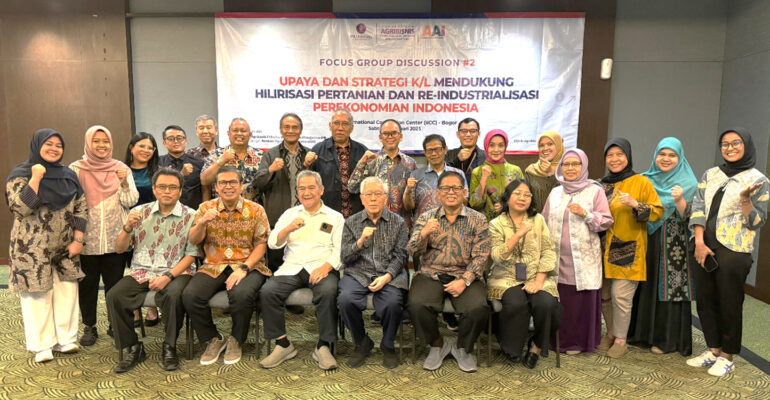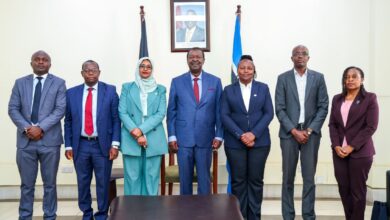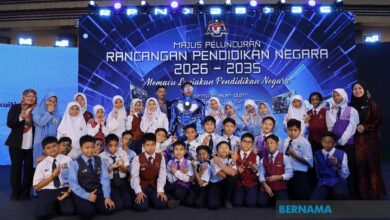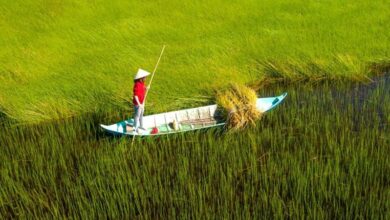IPB University Experts Discuss Agricultural Downstreaming Strategy for Reindustrializing Indonesia’s Economy

A focus group discussion on agricultural downstreaming was recently convened by the Department of Agribusiness at IPB University, in collaboration with the Indonesian Agribusiness Association (AAI). This event is part of the preparations for the upcoming commemoration of the “80 Years of Prof Bungaran Saragih,” scheduled for April 17, 2025.
Significance of Agricultural Downstreaming
During the discussion, Dr. Burhanuddin, Chairman of the Department of Agribusiness at IPB University, emphasized that agricultural downstreaming is a significant government priority that necessitates collaboration among various stakeholders. He stated that downstreaming not only enhances the added value of agricultural products but also creates employment opportunities and aids in poverty alleviation in rural areas.
Private Sector and Farmers Involvement
Professor Bungaran Saragih underscored the importance of involving the private sector and farmers as essential participants, rather than relying exclusively on government initiatives. He described downstreaming as a modern economic transformation, advocating for a facilitating role for the government.
Economic Impact on Lower Middle Class
Prof. Bayu Krisnamurthi, a Professor of Agribusiness Policy Science at IPB University, initiated the discussion by noting that downstreaming goes beyond industrialization and is crucial for alleviating poverty among the lower middle class. He highlighted the need for equitable distribution of benefits from downstreaming to ensure that its effects reach wider communities.
Role in Poverty Reduction
Prof. Nunung Nuryartono, Deputy for Coordination of Social Welfare Improvement at the Coordinating Ministry for Human Development and Culture (Kemenko PMK), participated in the discussion and pointed out the vital role of downstreaming in poverty reduction. He indicated that roughly 8.57% of the Indonesian population lives below the poverty line, making the transformation of the agricultural sector essential for income generation and rural industrialization.
Potential Agricultural Commodities for Downstreaming
The conversation also addressed various agricultural commodities with potential for downstreaming, such as seaweed. Widya Rusyanto from the Ministry of Maritime Affairs and Fisheries (KKP) reported that Indonesia’s seaweed exports reached 265,840 tons in 2023, valued at USD 433.72 million. However, he noted existing challenges, including export regulations, high logistics costs, and traditional post-harvest methods.
Contributions from the Plantation Sector
In the plantation sector, Elvyrisma T. Nainggolan from the Ministry of Agriculture highlighted that palm oil is the predominant contributor to plantation product exports, representing 66.27% of the total.
Innovations in Coffee and Other Commodities
The downstreaming of coffee is also on the rise, with product innovations such as roasted beans and advanced fermentation techniques. Other commodities, including cocoa and nutmeg, also offer significant opportunities for further development within the downstream industry.
Conclusion and Future Directions
The discussion concluded with a focus on the necessity of developing quality human resources, encouraging collaboration across different sectors, and establishing regulatory support for sustainable downstreaming. With the implementation of effective strategies, agricultural downstreaming has the potential to be a significant driver of national economic growth, job creation, and the enhancement of Indonesian products’ competitiveness in the global market.
(Source: IPB University)




